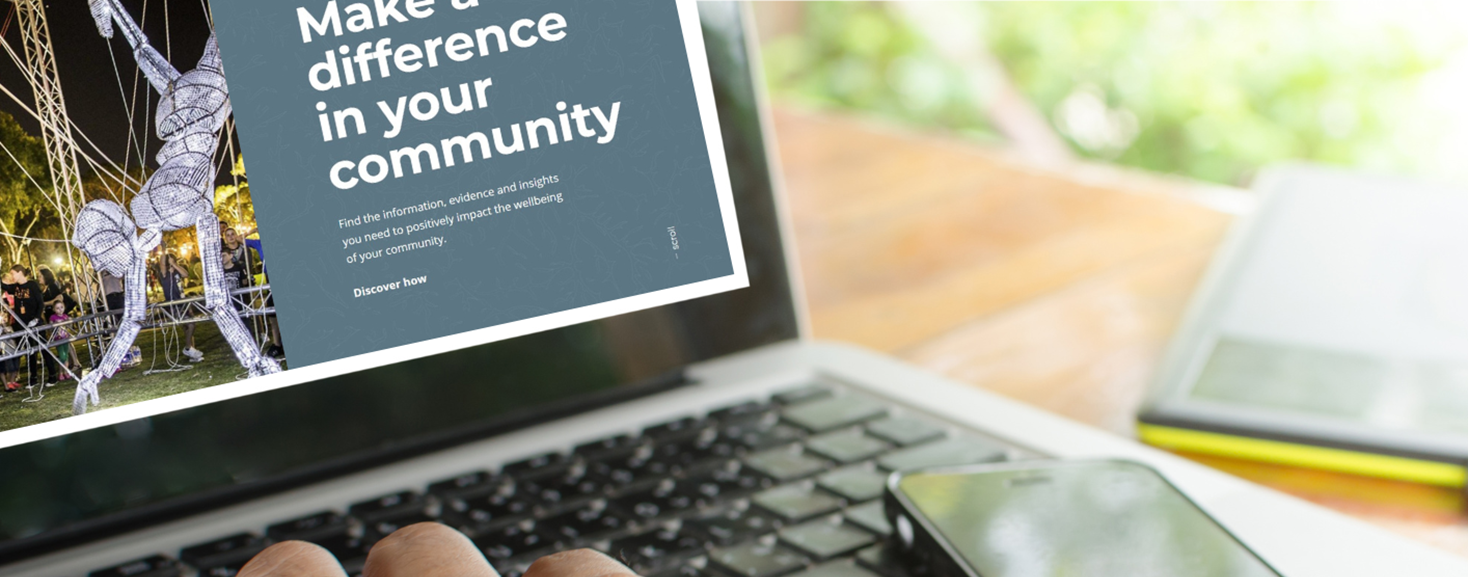Learning snapshot
Thinking beyond your grant – How to amplify your impact
Have you transformed your community-focused idea into a reality with a grant? Well, it's time to turn your impact dial up to 11 by sharing your story with others and considering a social impact plan.
12 February 2024
Securing a Lotterywest, Healthway or other type of grant is a great opportunity to help turn a community-focused idea into a reality. But the advantages it can provide to your organisation don’t stop there.
To amplify the impact of your initiative, telling your story and celebrating your achievements can spread the word about how your organisation is making a difference.
It’s all about sharing the results and successes with your stakeholders, which could include those who directly benefit from the initiative, partnering organisations or groups, staff and volunteers, and the wider community.
Happily, it doesn’t have to cost you!
Whether it’s social media posts, sharing the journey as a guest speaker at an event, contacting a peak body to spread the word or crafting e-newsletters to update your contacts about your wins - there are various free or inexpensive ways to get the word out. Featuring your story as a case study on the Community Impact Hub is another option to get the word out about your achievements.
This information sharing can also inform the community about how they might get involved in the initiative, boost awareness of your organisation and build goodwill.

Consider introducing a Social Impact Plan if your project is ongoing or you are about to embark on a new project to measure how your endeavours are supporting individuals and communities.
What you find can prove valuable in securing further funding to extend, expand or diversify the project into the future, which could, as a result, reach more people and benefit more communities.
There is plenty to consider when charting a course to measure and amplify your social impact, and in this article, we look at five hot topics.
1. Choose a framework
First up, decide on a framework that gives you a structure to set targets against and measure your performance. Existing frameworks such as the Social Return on Investment model (SRoI) can help manage and communicate the social value an initiative creates in the form of a measurable number understood by all relevant stakeholders.
A short video that’s linked from the Federal Government’s Institute of Family Services website offers a first-hand insight into the benefits of an evaluation using SRoI.
The seven SRoI principles include a requirement to involve stakeholders, understand the impact of projects, value the things that matter and to be transparent.
To create your own framework, it might be worth starting with an existing registered framework as it can be used as a template to develop a more tailored process that will best suit your needs.
Of course, the Community Impact Hub’s Impact Planner can also be a great starting point to identify the outcomes you want to measure and the indicators that will demonstrate change, and to plan your data collection for outcomes measurement. Our Grant Impact Guide outlines the principles and processes of impact planning, outcomes measurement, and evaluation.

2. Time it right
Effective social impact measurement relies on good timing. The longer-term the goal, the more time should be allocated for measurement.
If you are running an ongoing, or long-term initiative, your indicators of change should be monitored and measured on a pre-arranged schedule, such as monthly, quarterly and/or on an annual basis.
It’s also important to ensure you have collected baseline data at the beginning of your initiative, so that you can actively measure change over time.
3. Get that data
The foundation of any impact narrative, data generally comes in two types – Quantitative and Qualitative
Quantitative data is the numerical values that can be collected, defined and analysed using statistical methods such as surveys, questionnaires and online polls. This type of data often measures attitudes, behaviours and opinions.
Qualitative data is generally non-numerical, this data can often be collected verbally or in writing using interviews, focus groups or open-ended surveys to understand the reasons behind attitudes, behaviours and opinions.
Data collection is critical to outcomes-based grant funding, as it allows grant seekers to demonstrate the impact of their programs.
4. Look at it as a learning experience
While the intent to measure social impact effectively is the aim, our efforts are not always as fruitful as we would hope.
If your metrics miss the mark, check in with stakeholders to find out why, and then make the changes you need to improve the process next time around. Putting in place progress measurement at different points across your initiative can also help you to course correct if you see things heading in the wrong direction.
Be open to things not always going to plan, as it provides opportunities to change, evolve and move on from aspects that didn’t work. Remember, most funding bodies are not punitive where challenges occur – we know that things change, and as long as you communicate actively with your funding provider, you will usually be supported through this.

5. Use tools like the Community Impact Hub
Lotterywest and Healthway’s digital platform, the Western Australian Community Impact Hub has a wealth of information, evidence and insights about the social impact of grant funding, and it’s free.
This publicly accessible resource features a detailed look at initiatives funded by Lotterywest and Healthway that have positively impacted the wellbeing of communities across the state – offering background to help shape your own social impact strategy.
More than 50 case studies outline how not-for-profit organisations and local governments across WA have rolled out a diverse mix of initiatives, explored their impacts, and grant recipients share valuable insights about what they learned during the process.
If you have any questions or would like a demonstration of any of the tools and resources on the Community Impact Hub, please email our Knowledge and Insights team at community.impacthub@lotterywest.wa.gov.au
Learn about wellbeing
Understand how your community is going to help you to better target and plan your project.
Ready to plan your project?
Understand your vision, plan your impact and report on the outcomes of your project with three easy interactive tools in the Community Impact Planner.
Acknowledgement of Country
The Western Australian Community Impact Hub acknowledges and pays respect to the Traditional Owners of the land on which we are based, the Whadjuk people of the Noongar Nation and extends that respect to all the Traditional Owners and Elders of this country. We recognise the significant importance of their cultural heritage, values and beliefs and how these contribute to the positive health and wellbeing of the whole community.